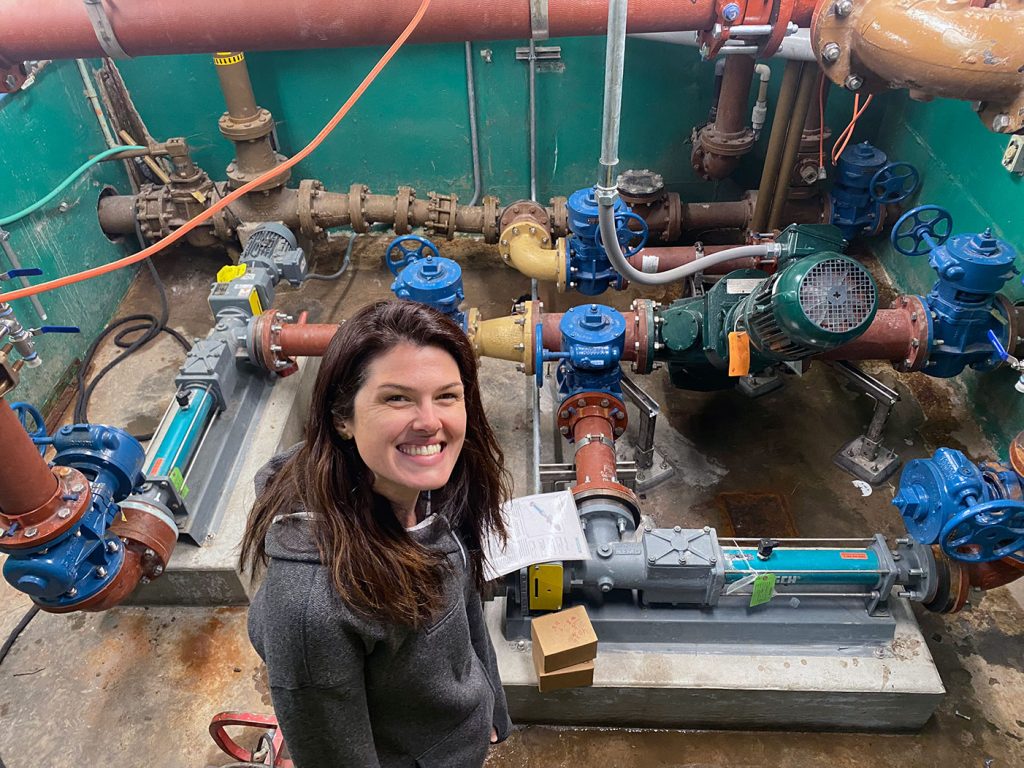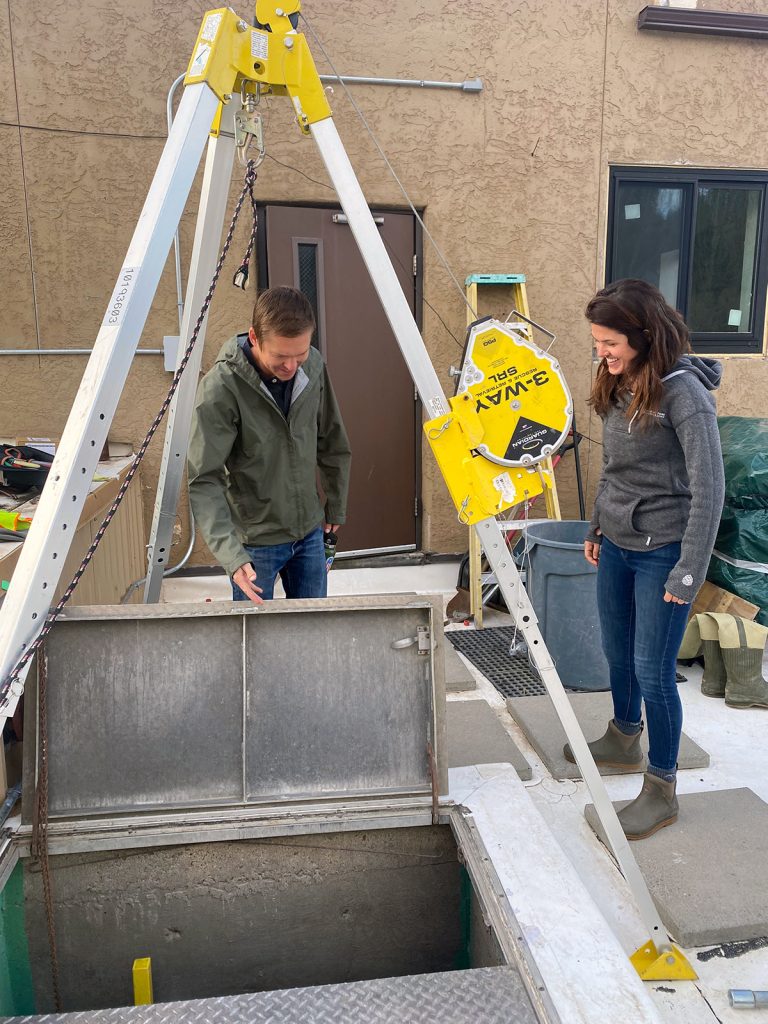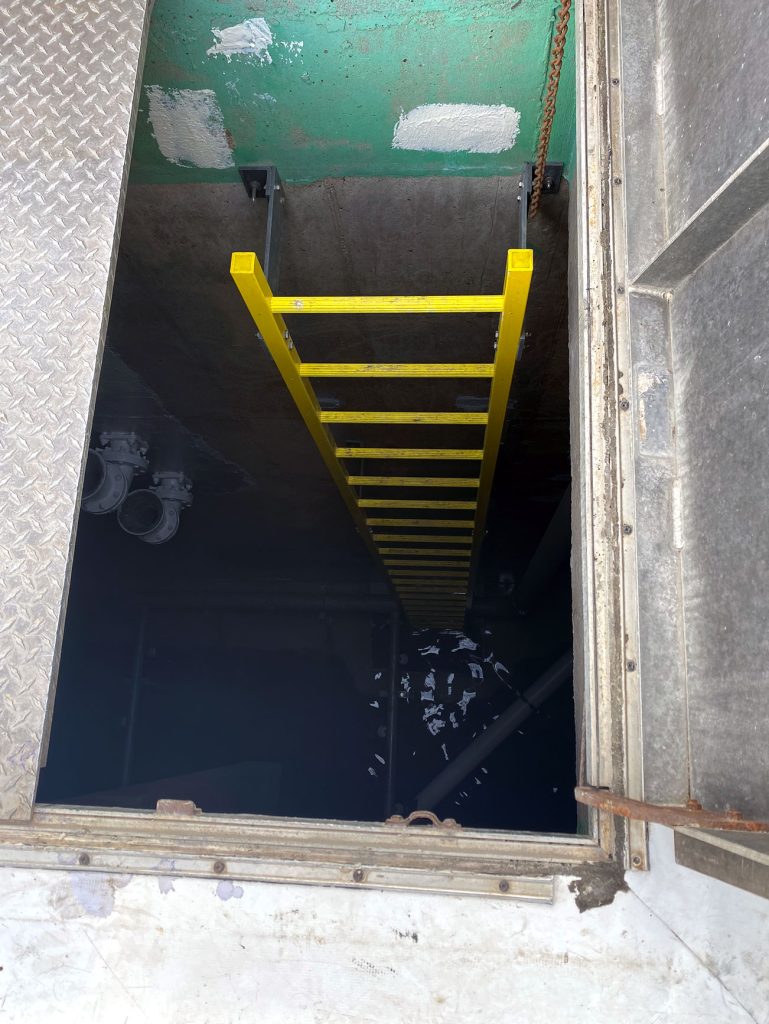Wastewater engineering is a vital facet of the civil engineering discipline. Without it, public health would suffer. Wastewater engineering, also referred to as sanitation engineering, is the practice of supplying safe potable water to communities, treating water appropriately according to community needs, and developing wastewater infrastructure to safely remove waste.

What is Wastewater Engineering
Wastewater engineering encompasses the design and execution of the systems that deal with used water. This includes the network of sewer pipes beneath cities, stormwater management systems, water treatment facilities, treatment programs for the water itself, and plant operations.
Wastewater engineering is considered a specialized discipline within environmental and civil engineering. It often requires a deep knowledge of chemistry, biology, physics, mathematics — as well as city planning, mechanical engineering and machinery, and water analysis.
Wastewater Engineering Job Responsibilities
Career opportunities in wastewater engineering are varied and diverse. You could opt to manage or supervise operations at a water treatment facility, design the facilities themselves, or even manage the testing and inspection of water. Wastewater treatment facilities need an Engineer of Record, also known as an EoR, to plan and make decisions. This can be an in-house role or a outside consultant at an engineering firm. Outside of plants, you can help design water resource systems for cities, model & analyze watersheds, or provide key insights on the impact of environmental disasters like wildfires and hurricanes on local water systems.
Across all opportunities, some common responsibilities include:
- System planning: simulating water flow, designing system behavior, and creating layouts for sewer networks, treatment plants, or other parts of water infrastructure.
- Treatment: designing and choosing the methods of removing contaminants from the water system.
- Environmental assessment and protection: understanding the impact of wastewater solutions on the surrounding ecosystems.
- Resource conservation: identifying ways to reuse water and minimize wastage, particularly in areas that experience drought or scarcity.
- Regulatory compliance: ensuring that designs meet all pertinent regulatory standards, including state, federal, and local.
- Oversight and supervision: Managing facility budgets, staff, quality control, and more.
- Operations and maintenance: Making sure systems are in good working order and unlikely to break down.
Wastewater engineering jobs are an essential service to keep communities safe and healthy. Careers in this area are rewarding, challenging, and perfect for people who want their work to have a direct positive impact.


Why is Wastewater Engineering Important?
Without water, civilization as we know it wouldn’t exist. Of course, water is a necessity for daily life. Before the existence of complex and efficient networks to provide clean water, remove used water, and transform dirty water into potable water, life looked a lot different — and lifespans were far shorter.
Wastewater engineering supports public health by providing clean, drinkable water, preventing waterborne disease, and treating water appropriately for the needs of the community.
In addition, it can help conserve resources. By recycling water, especially in places impacted by droughts, wastewater engineering can help address water scarcity. It also supports the growth and development of cities and can help address the environmental impacts like pollution that we see in urban rivers.
Lastly, it can protect the environment. Wastewater engineers can play an important role in preserving local ecosystems and natural resources. For example, in Basalt, Colorado, the Basalt Sanitation District discharges their cleaned and treated wastewater into Gold Medal fishing waters. Sitting at a high elevation, there are millions of downstream users who tap into this river. Properly treating this water before discharge has monumental impacts.
By designing the systems to manage and treat water, wastewater engineers play a critical role in protecting public health, enabling sustainable development, and reducing negative effects on the environment. To learn more about a career in this field, check out opportunities at Roaring Fork Engineering.
Types of Wastewater Engineering Projects
At the heart of every wastewater project is the goal of supporting water infrastructure, whether it’s managing resource scarcity, mitigating flooding, or ensuring treatment plant operations are optimized.
Examples of projects wastewater engineers might work on are:
- Wastewater Treatment Plants: Facilities that treat sewage and industrial effluents.
- Sewer Collection Systems: Networks of pipes and lift stations transporting wastewater.
- Stormwater Management Systems: Infrastructure to manage runoff and prevent flooding.
- Water Reuse Systems: Systems designed to recycle treated wastewater for non-potable uses.
Some typical projects at Roaring Fork Engineering include managing city infrastructure to prevent damage from stormwater runoff. In mountainous terrain, stormwater not only creates flooding risks, it can also cause landslides, degrade critical roads or mountain passes, and increase the risk of polluting lakes and other habitats. These projects include hydraulic modeling, hazard impact analysis, and more.
Wastewater Engineering in Colorado
Colorado is a state known for its vibrant cities and vast mountainous terrain. It’s also a state that’s often experiencing near-drought conditions.
This presents challenges for wastewater infrastructure. Urbanization requires finely-tuned stormwater infrastructure, sewer collection systems, and treatment plants to ensure residents have consistent access to clean water.
In addition, the rocky terrain and steep vertical slopes multiply the environmental impacts of typical weather events like heavy rain — creating dangerous situations if not carefully managed. In Western Colorado specifically, many of the mountain towns founded during the gold boom are now operating on aging infrastructure that needs to be replaced.
To mitigate these challenges, Colorado relies on dams for both water supply and flood protection. Ensuring these dams are safe, functional, and unlikely to break down in an emergency is a core responsibility of water resource engineers throughout the state.
Learn More About Wastewater Engineering with RFE
Roaring Fork Engineering is Colorado’s premier water resources management firm. Our work spans sustainable water infrastructure, to local water treatment plants, to safeguarding your property or construction site from stormwater runoff.
Our comprehensive services in civil and environmental engineering provide a broad and diverse perspective on strategy and design.
Learn more about our work — see how we provided key insights for the design of the Carbondale Wastewater Treatment Facility.
If you have a wastewater or water resource engineering project in mind, get in touch.